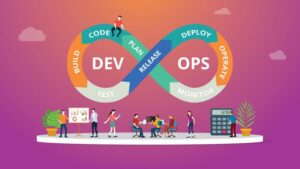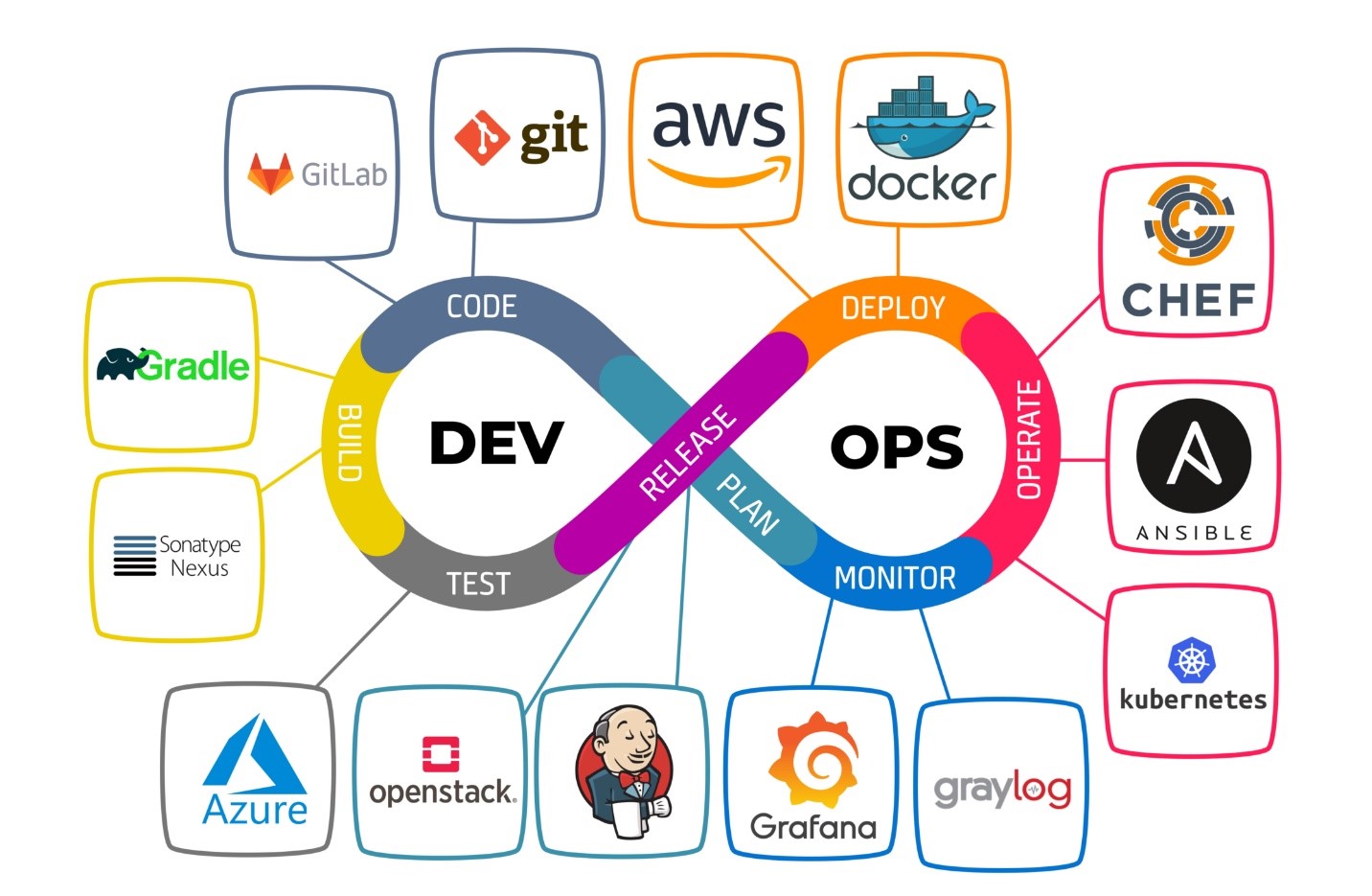Introduction
DevOps is a software development approach that combines development (Dev) and IT operations (Ops) to enhance collaboration and efficiency throughout the software delivery lifecycle. It emphasizes automation, continuous integration, continuous delivery (CI/CD), and infrastructure as code to ensure faster and more reliable software releases. By breaking down the traditional silos between development and operations teams, DevOps fosters a culture of collaboration, leading to streamlined workflows, quicker problem resolution, and improved product quality. With businesses increasingly adopting DevOps practices, professionals skilled in these areas are in high demand, offering lucrative career opportunities across a wide range of industries.

10 Best Jobs After DevOps Training
After completing DevOps Certification Course, professionals can explore various high-demand roles across industries.
Here are the top 10 jobs after DevOps training, along with salary insights in India:
1. DevOps Engineer
A DevOps Engineer is responsible for integrating and automating software development and IT operations to ensure a seamless release process. They handle CI/CD pipelines, infrastructure as code, and monitoring systems.
Average Salary: ₹6-12 LPA (mid-level), ₹15-30 LPA (senior)
2. Cloud Engineer
Cloud Engineers design and manage cloud-based infrastructure, ensuring scalability, security, and efficiency. They work with cloud providers like AWS, Azure, or Google Cloud to optimize cloud systems.
Average Salary: ₹7-14 LPA (mid-level), ₹20-35 LPA (senior)
3. Site Reliability Engineer (SRE)
SREs blend software engineering and IT operations, focusing on improving the reliability and performance of systems. They work on automation, scaling, and system health monitoring.
Average Salary: ₹10-15 LPA (mid-level), ₹20-40 LPA (senior)
4. Build and Release Engineer
Build and Release Engineers manage the deployment of software, ensuring that releases are stable and meet quality standards. They oversee version control, release automation, and packaging.
Average Salary: ₹6-10 LPA (mid-level), ₹12-18 LPA (senior)
5. Automation Engineer
Automation Engineers specialize in automating repetitive tasks in software testing, deployment, and infrastructure management. They design and maintain automation frameworks.
Average Salary: ₹6-10 LPA (mid-level), ₹12-20 LPA (senior)
6. Kubernetes Administrator
Kubernetes Administrators manage container orchestration, ensuring that applications are deployed efficiently in clustered environments. Expertise in Docker and Kubernetes is essential.
Average Salary: ₹8-14 LPA (mid-level), ₹18-30 LPA (senior)
7. Infrastructure Engineer
Infrastructure Engineers maintain and optimize IT infrastructure, ensuring that it aligns with the company’s needs. They focus on network, server management, and systems optimization.
Average Salary: ₹6-12 LPA (mid-level), ₹15-25 LPA (senior)
8. Security Engineer
Security Engineers ensure that software and systems are secure against cyber threats. They work on firewalls, encryption, and compliance with security standards.
Average Salary: ₹8-14 LPA (mid-level), ₹15-25 LPA (senior)
9. DevOps Architect
DevOps Architects design the entire DevOps framework within an organization, implementing tools and practices to streamline development and operational workflows.
Average Salary: ₹15-25 LPA (mid-level), ₹30-50 LPA (senior)
10. Continuous Integration/Continuous Deployment (CI/CD) Engineer
CI/CD Engineers manage automated pipelines, ensuring code is seamlessly integrated, tested, and deployed. Their role is vital in maintaining smooth software delivery cycles.
Average Salary: ₹8-12 LPA (mid-level), ₹15-28 LPA (senior)
The demand for DevOps professionals is growing rapidly, with salaries ranging from ₹6 LPA to ₹50 LPA depending on the role, experience, and location. With the right skills, individuals can unlock lucrative career opportunities in both startup and enterprise environments. One can join the DevOps Training in Delhi for the best skill development and opportunities.
Why Do We Need DevOps?
Here are the major reasons that make DevOps essential:
- Faster Time to Market: DevOps accelerates software development and deployment processes, enabling faster product releases and updates, essential for staying competitive in today’s fast-paced market.
- Improved Collaboration: By breaking down silos between development, operations, and other teams, DevOps fosters a culture of collaboration, enhancing communication and aligning goals for smoother workflows.
- Automation and Efficiency: DevOps automates repetitive tasks, such as testing, deployment, and monitoring, reducing manual errors and increasing productivity.
- Continuous Integration and Delivery (CI/CD): DevOps ensures that code changes are integrated and delivered continuously, leading to frequent and reliable releases.
- Enhanced Product Quality: Through automated testing and continuous monitoring, DevOps identifies and resolves issues early, ensuring better product quality.
- Scalability and Flexibility: With practices like infrastructure as code (IaC), DevOps enables easier scaling and management of infrastructure, adapting quickly to changing demands.
Conclusion
To sum up, DevOps training opens doors to high-demand roles such as DevOps Engineer, Cloud Engineer, and SRE, with salaries ranging from ₹6 LPA to ₹50 LPA. Mastering automation, cloud, and CI/CD skills positions professionals for growth, making DevOps a rewarding career path in today’s tech-driven world.
FAQs
- What is the main goal of DevOps?
DevOps aims to improve collaboration between development and operations teams, automate processes, and streamline the software development lifecycle to deliver reliable, high-quality software faster.
- What skills are essential for a DevOps professional?
Key DevOps skills include knowledge of CI/CD pipelines, cloud platforms (AWS, Azure), containerization tools (Docker, Kubernetes), automation scripting, version control (Git), and infrastructure as code (IaC).
- How does DevOps differ from traditional IT operations?
DevOps emphasizes automation, continuous integration, and delivery, while traditional IT operations focus on manual processes and separate teams for development and operations.
- What are the benefits of implementing DevOps?
DevOps leads to faster software releases, improved product quality, better team collaboration, reduced downtime, quicker recovery from failures, and more efficient use of resources.
- Which industries benefit most from DevOps practices?
Industries like IT, e-commerce, finance, healthcare, and media benefit greatly from DevOps, where rapid software updates and high system reliability are crucial.
